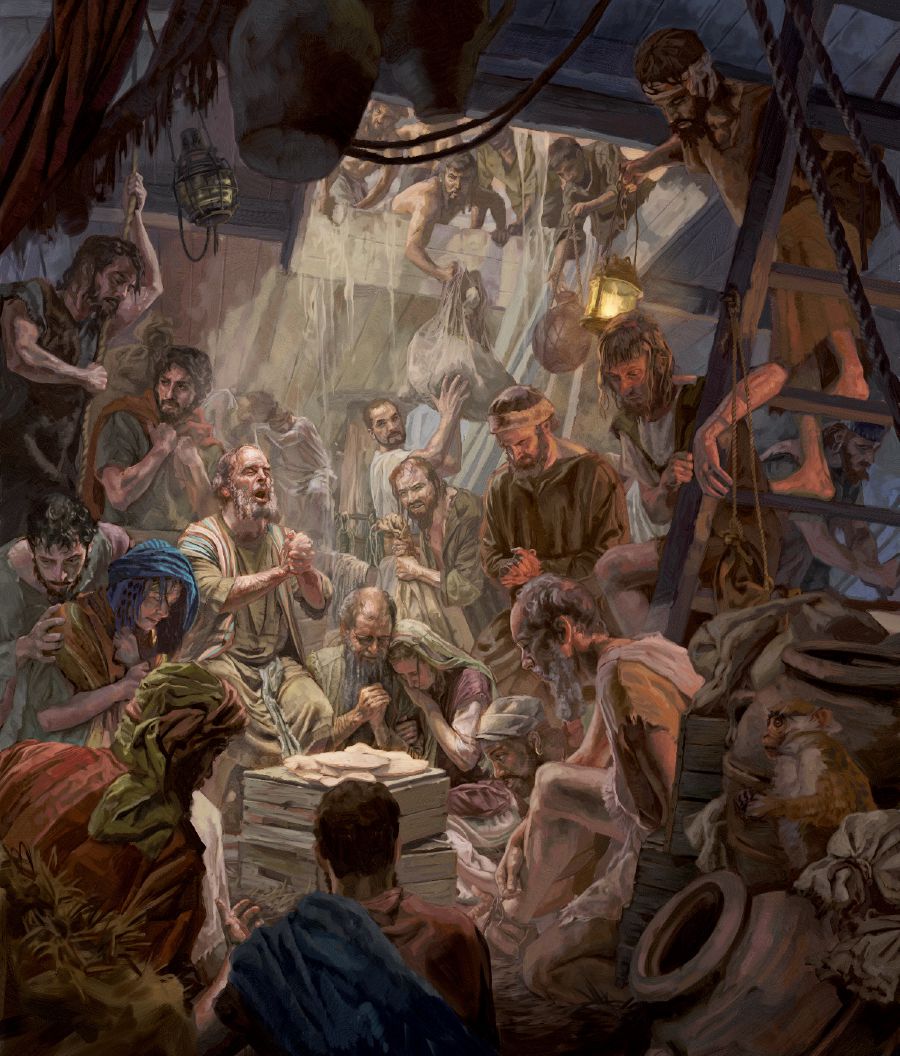Mem dị aPọl agbanạ ophiịny-abazị, odị aḍeenhaan oboom omheeraam r’eboom ephomhoghiạn we
1, 2. Iwạ mọ aPọl aḍigh oghuugh aghị eghẹn ekpisi, kụ eeni odị aaḅaghamhiạn ghan loor ilọ eeghe?
1Bạl onhụ English
2 Bạl onhụ English
3. APọl asopha oḍighi eeghe, kụ yira kooḅeghiọn eeghe siẹn emhuoghaạph phọ ephẹn phọ?
3 Bạl onhụ English
4. Epẹ aPọl rakị bọ, emhiighom mọ odị aḍigh oghuugh dị arọl ika, kụ abuọ anhiạn kụ urọl bọ r’odị?
4 Bạl onhụ English
5. APọl amhiịn buọ anhiạn epẹ Saidon, kụ yira otuughạ eeghe esi iphẹn phọ?
5 Bạl onhụ English
6-8. Abuọ aPọl oḍuạ bọ Saidon uḅilhẹ osi ika Knaidọs, kụ ighẹn aroopoogh kụ edị eeni odị amhoọgh oghaạph oghaạph iiḅi iinhaghạn phọ?
6 Bạl onhụ English
7 Bạl onhụ English
8 Bạl onhụ English
9, 10. Ighẹn ipaanhaạn kụ edị abuọ aPọl osoman mem mọ bidị motuman bọ Krit?
9 Bạl onhụ English
10 Bạl onhụ English
11. APọl angọ buphẹ r’odị oḍigh bọ pạ oghuugh pho eeghe oromha, kuolọ awe phọ usopha oḍighi eeghe?
11 Bạl onhụ English
12. Mem mọ bidị oḍuạ bọ Krit, oghuugh phọ bidị oḍigh bọ asoman eeghe iiḅaghamhị, kụ buphẹ rokiilhom bọ ukparaghạ oḍighi eeghe okpetenhaan iiḅaghamhị phọ?
12 Bạl onhụ English
13. Araraạr irọl ika siphẹ oghuugh phọ abuọ aPọl oḍigh bọ mem mọ oghim mọ rakim bọ?
13 Bạl onhụ English
14, 15. (a) Uḍighi ika kụ aPọl aatughianhạm bọ buphẹ r’odị oḍigh bọ pạ oghuugh phọ iphụr arurụ phọ odị angọ bọ bidị? (b) Yira otuughạ eeghe esi adom oḍuom olhoghi phọ aPọl angọ bọ we phọ?
14 Bạl onhụ English
15 Bạl onhụ English
Kụ “Oomo Phọ Ayoor Okpetenaan . . . Ophunughu Anyụ Ade” (Iiḍighi 27:27-44)

“He . . . gave thanks to God before them all.”—Acts 27:35
16, 17. (a) APọl aaḅereghị oghẹn amem, kụ eeghe kụ iḍuạ emite? (b) Ika kụ idị ipẹ aPọl aghaạph bọ etuụgh emite?
16 Bạl onhụ English
17 Bạl onhụ English
18-20. Ika kụ idị awe phọ aMaItạ ophạm buọ aPọl “egey ephamạm,” kụ eeghe iiḍaạny kụ imite?
18 Bạl onhụ English
19 Bạl onhụ English
20 Bạl onhụ English
21. (a) Ighẹn iniin araraạr dị eru ni inẹ kụ edị yira omhiịn siẹn apakirị igẹ phọ aLuk iphẹn phọ? (b) APọl aḍighi eeghe iiḍaạny, kụ awe phọ aMaltạ umhegheron ika?
21 Bạl onhụ English
22. (a) Ika kụ idị oniin otughemhiạ asẹph igẹ phọ aLuk ilọ ipẹ bidị oḍigh bọ oghuugh oghị Rom? (b) Yira kooḅeghiọn eeghe emhuoghaạph phọ etum bọ siẹn?
22 Bạl onhụ English